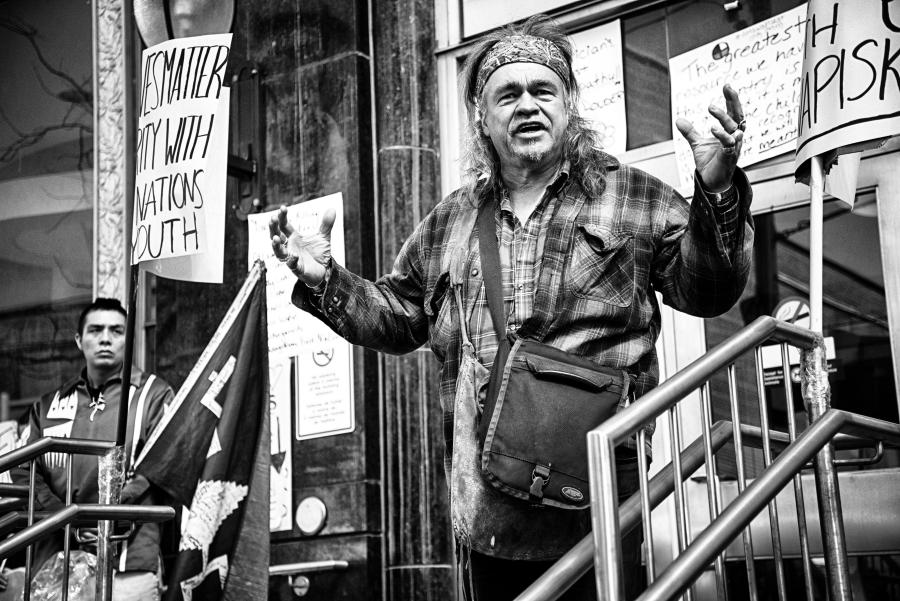
Known by the Tsilhqot’in people of the area as Teztan Biny, Fish Lake is a small lake located on the Chilcotin plateau in the Cariboo region of British Columbia on the Fish Creek Watershed, 125 kilometers southwest of the town of Williams Lake. Fish Lake lies within the picturesque lakes and forests of the Tsilhqot’in territory and is of great significance culturally and spiritually to the Tsilhqtot’in people. Throughout the last decade this land has been the subject of a battle between First Nations people and their supporters and Taseko Mines, Ltd. The mining company has been lobbying for years to start a mining project on what is considered one of the world’s largest undeveloped gold-copper deposits.
After the first proposal for an open pit mine, which would include turning Fish Lake and several other lakes in the area into tailing ponds, was rejected by Canada’s Ministry of Environment in 2010 on the grounds of adverse environmental damage, Taseko re-submitted a second environmental assessment with revisions to conserve Fish Lake. The original report stated that the direct environmental impacts of the mine would damage water quality, fish and wildlife habitat, and the ability of local First Nation members to conduct traditional activities important to their cultural heritage. The federal review panel came to similar conclusions this time with the help of an independent environment assessment, finding that the resulting damage to the environment would be irreparable.
In a February 2014 press release Environment Minister Leona Aglukkaq relayed, "The Minister of the Environment has concluded that the New Prosperity Mine project is likely to cause significant adverse environmental effects that cannot be mitigated. The Governor in Council has determined that those effects are not justified in the circumstances; therefore, the project may not proceed.”
Taseko and its supporters say they haven’t given up. Throughout the lobbying Taseko and Williams Lake’s business minded, including Mayor Kerry Cook, have pushed the economic benefits. Supporters of the mine say it will be lucrative for the town and that the project needs to be approved for Williams Lake to move forward in the world of commerce. The 1.5 billion dollar mining project would create an estimated 550 direct jobs for locals and $340 million in gross domestic product annually.
Taseko’s vice president of corporate affairs Brian Battison commented on the ruling, “We fundamentally disagree with the decision made by the Government of Canada and we would say that this is not the end. Saying no to a project of this magnitude and importance to B.C. is not an acceptable conclusion. This project is just too important.” The mining firm is compiling statistics for a third appeal.
However Tsilhqot’in tribal Chairman Joe Alphonse and other Tsilhqot’in members see reason to celebrate. "I think if you've had two scathing reports like this come out, you know, I think that speaks volumes about any possibility of moving forward on this project by anyone," he said. "So we have comfort in that." Last month Alphonse accompanied other Indigenous leaders and their allies to Parliament Hill to warn politicians that approving the mine would harm the relationship between Ottawa and Indigenous communities in Canada. The resulting mine rejection has made Alphonse optimistic about the future. “This gives hope to all First Nations that there are… people in this country that will listen to us.”



